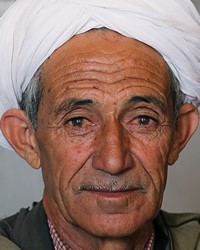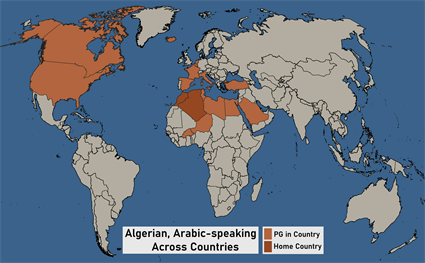Algeria became a French colony in 1830. France ruled that part of North Africa for well over 100 years. After WWII, there were many independence movements throughout the world, one of which began in Algeria in 1954. After eight years of bitter conflict, Algeria gained her independence in 1962.
That was also a time when France needed cheap labor. Commonly, former colonial powers allow the former colonized to enter their countries as cheap labor. Algerians and others from recently liberated French colonies filled the gap.
There were four waves of Algerians moving to France for work, but after Algerian independence, they were viewed with far greater hostility. The French government often deported them to Algeria. In Algeria, Arabs found few job opportunities, so they continued to attempt to find work in France. To this day there is continual strife between the needs for cheap labor and the need for protecting jobs for the French, and maintaining French culture.
The lives of the French Algerians are vastly superior to the one of the Arabs who live in Algeria. Most Algerian Arabs continue to speak Algerian Arabic at home and French with others. The majority are taking advantage of the French education system to improve their lives and the future of their children. As they gain more education and job skills they are moving into the middle and upper classes. Most French Arabs would fit into the lower or lower middle class of the nation as shop keepers, factory workers, construction workers, restaurant employees and agricultural workers. Some Arab families send money or remittances to their relatives and friends in Algeria on a regular basis.
Even in France, Algerian Arab families follow a paternalistic pattern. The husband controls the family with the wife and children submitting to his authority. Yet Algerian Arab women in France are in a better position than those in North Africa. Algerian women who gain a college education have many career opportunities that would not be possible in Algeria.
In traditional Arab culture the parents choose whom their child will marry. That is changing as more and more young people in France choose their own marriage partner. In general, Arab families have more children than other French citizens. This fact alarms some Europeans who recognize the situation will give them less power in the future.
Some Algerian Arabs are becoming more assimilated with French culture. There are many Algerian Arab soccer players, actors and musicians with an Algerian background.
Most French Algerian Arabs are Sunni, the largest branch of Islam. They try to obey the teachings of the Koran and the prophet Mohammad. They believe that by following the Five Pillars of Islam that they will attain heaven when they die. However, Allah, the supreme God of the universe, determines who enters paradise.
Sunnis pray five times a day facing Mecca. They fast the month of Ramadan. They attend mosque services on Friday. If a Muslim has the means, he or she will make a pilgrimage to Mecca once in his or her lifetime. Muslims are also prohibited from drinking alcohol, eating pork, gambling, stealing, using deceit, slandering and making idols.
The two main holidays for Sunni Muslims are Eid al Fitr, the breaking of the fast and Eid al Adha, the celebration of Abraham's willingness to sacrifice his son Ismael to Allah.
More and more young Algerian people are becoming secularized in France. Their Islam is becoming more cultural rather than religious.
The Algerian Arabs of France must understand their good works will not get them right with God. God forgives sins and grants eternal life only through the death and resurrection of his Son Jesus or Isa. The Arabs need to see biblical Christianity as not just the Europeans' religion but as their own as well.
Ask God to open the spiritual eyes of the Algerian Arabs in France as they hear about Jesus.
Pray that the Lord sends Christian believers to build friendships with Arabs and tell them about new life in Christ.
Pray the Lord raises up a Disciple Making Movement among Algerian Arabs in both France and Algeria.
Pray that leaders in the French Arab community would be willing to investigate the claims of Christ.
Scripture Prayers for the Algerian, Arabic-speaking in France.
https://en.wikipedia.org/wiki/Algerians_in_France
https://en.wikipedia.org/wiki/French_Algeria
| Profile Source: Joshua Project |


























